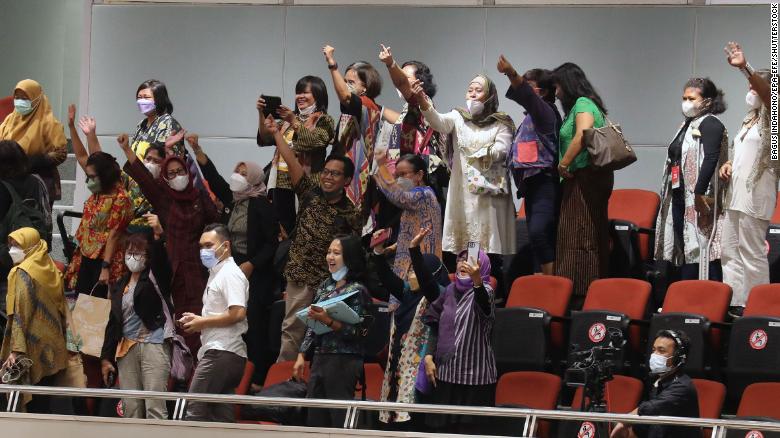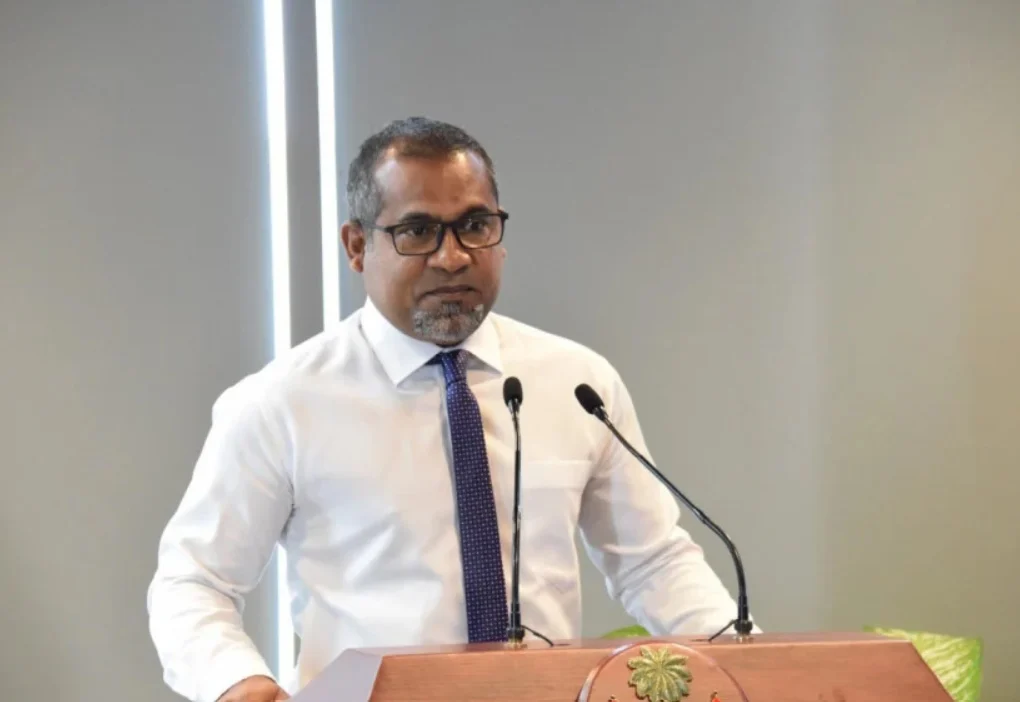Indonesia’s parliament passed on Tuesday a landmark bill providing a legal framework for victims of sexual violence to seek justice, a breakthrough move that was welcomed by activists in a country where this type of abuse is often regarded as a private matter.
A majority of lawmakers backed the bill that for years was stalled amid opposition from conservative groups in the world’s largest Muslim majority nation.
The new law provides definitions of acts of sexual violence as punishable criminal offenses and recognizes that men and children can also be victims, a provision that addresses a loophole in Indonesia’s Criminal Code, which only recognized rape and lewd crimes committed by men against women.
“We hope that the implementation of this law will confront and resolve cases of sexual violence, protection of women and children in Indonesia,” Puan Maharani, speaker of Indonesia’s House of Representatives, told parliament.
The legislation also consists of provisions for the protection and recovery of victims, and further recognizes cyber sexual harassment, forced contraception, and forced marriage, as forms of sexual violence.
The new law stipulates prison terms of up to four years and about $14,000 in fines for electronic-based sexual violence, and up to 15 years in prison and a fine of nearly $70,000 for sexual exploitation.
The National Commission on Violence Against Women and civil society groups proposed the bill in 2012. It was only in January this year, a decade later, that President Joko Widodo appealed to lawmakers to speed up deliberations.
A majority of lawmakers backed the bill that for years was stalled amid opposition from conservative groups in the world’s largest Muslim majority nation.
The new law provides definitions of acts of sexual violence as punishable criminal offenses and recognizes that men and children can also be victims, a provision that addresses a loophole in Indonesia’s Criminal Code, which only recognized rape and lewd crimes committed by men against women.
“We hope that the implementation of this law will confront and resolve cases of sexual violence, protection of women and children in Indonesia,” Puan Maharani, speaker of Indonesia’s House of Representatives, told parliament.
The legislation also consists of provisions for the protection and recovery of victims, and further recognizes cyber sexual harassment, forced contraception, and forced marriage, as forms of sexual violence.
The new law stipulates prison terms of up to four years and about $14,000 in fines for electronic-based sexual violence, and up to 15 years in prison and a fine of nearly $70,000 for sexual exploitation.
The National Commission on Violence Against Women and civil society groups proposed the bill in 2012. It was only in January this year, a decade later, that President Joko Widodo appealed to lawmakers to speed up deliberations.


















